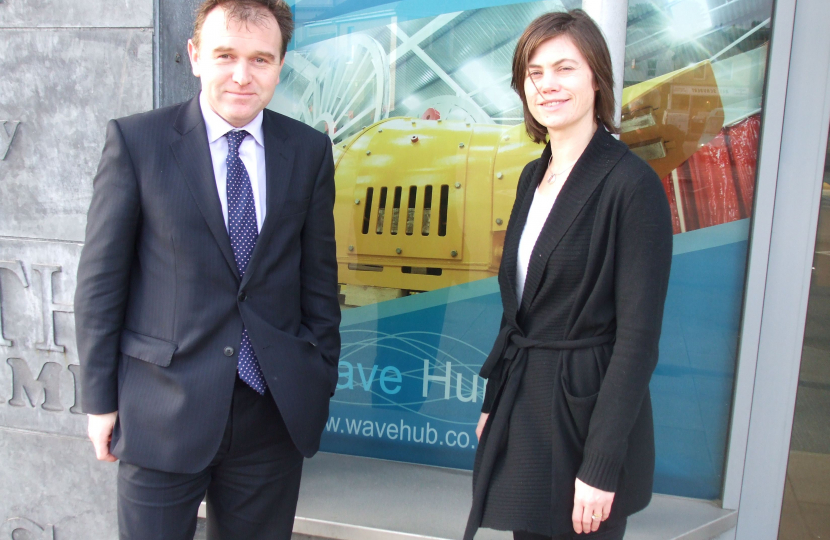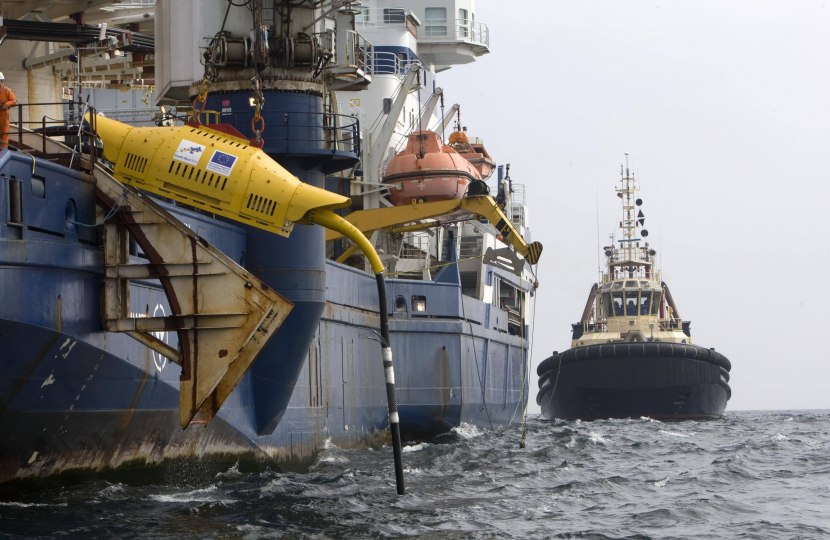George Eustice, the MP for Camborne and Redruth, has called on the government to tear down the bureaucratic barriers that stand in the way of marine energy testing in the South West.
In a Westminster Hall debate this afternoon he asked DECC Minister, Greg Barker, to learn lessons from the pragmatic Norwegian regulatory regime, and adopt a ‘light touch’ approach to developers looking to get test devices in the water.
Last month the government confirmed that the South West would be designated the first Marine Energy Park in the UK. One of the primary aims of the Marine Energy Park is to remove the barriers to testing and innovation and to cut the cost to pioneers of developing successful technology in the wave power sector.
George Eustice cited the bureaucratic and risk-averse approach used by agencies such as the Crown Estates and the Marine Management Organisation as a barrier to successful technology innovation and is calling for a simplified approach with far more authority devolved directly to local harbour masters to take final decisions. He is seeking a meeting with ministers to progress his proposals.
At present in the UK, ultimate authority for consenting test sites for new devices rests with the MMO and Crown Estates with both Natural England and the Environment Agency being statutory consultees.
• Crown Estates insist on onerous and costly insurance policies to cover decommissioning costs which are frequently disproportionate to the real risks associated with deployment of small test devices.
• The MMO insist that all new proposals to deploy a test device first go through a “Scoping” process to assess risk followed by a full blown “Environmental Risk Assessment.” The whole process can take nine months before permissions are finally granted and the process costs developers hundreds of thousands of pounds in administration and consultants. There is also considerable duplication.
• On small test sites, MMO permission is often granted for very short periods of just one month, which means developers are perpetually locked in an application process for extensions to their licence.
In Norway, considerable dispensation is granted for small test sites. The government issues broad guidance but ultimate authority rests with individual harbour masters who are closer to the project, understand the local area and can monitor how test sites evolve.
George Eustice said, “Pioneers in the wave power industry are taking considerable risks to help create an industry for the future and government agencies should get off their back and stand aside. One of the key aims of the Marine Energy Park is to tear down the bureaucratic barriers to success and I think that should start with a shake up at the Marine Management Organisation and Crown Estates.
“I want the UK to adopt the Norwegian system. In Norway, government agencies act as a helpful source of advice rather than an obstacle to progress and decision making is devolved down to local harbour masters who are best placed to take decisions and can adopt a pragmatic, can-do approach to make things happen.”
Responding, Greg Barker said, "I am grateful to the Honorable member [Mr Eustice] for raising these issues, and am keen to hear the experiences of stakeholders, and learn lessons from other countries, as we look to ensure best practice for our Marine Energy Industry".
Wave Hub in Hayle is the first commercial scale test facility in the world and its work is complemented by FAB Test in Falmouth to test smaller prototype devices. The two test facilities together make up the central component of the UK’s first Marine Energy Park.



